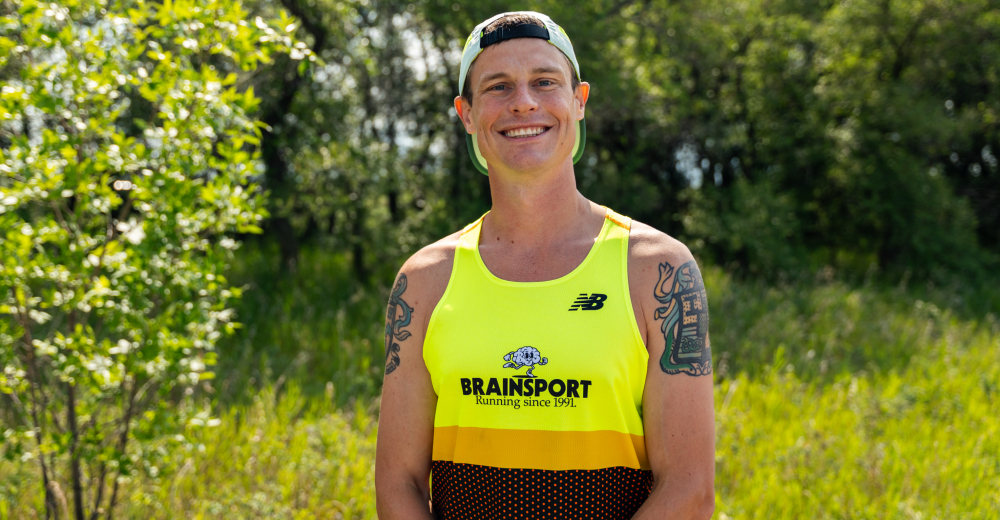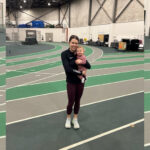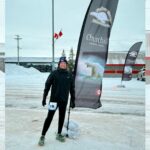Iain McCormick may never know exactly what happened in the wee hours of July 12, 2024.
The Saskatoon teacher and lifelong runner remembers going out for dinner with friends the evening before. Then — nothing. His next memory is waking up a week later in the spare bedroom of his parents’ home, head and neck throbbing.
“I remember being really scared,” McCormick recalls now, more than a year later. “I was like: Oh my God, I don’t remember anything. What happened?”
What happened was this: Just minutes after logging off from an online video game, McCormick drove into a rainstorm around 2 a.m. and collided with a parked construction vehicle. Emergency crews used the jaws of life to extract him from his totaled car. He had a concussion, a broken orbital bone, a torn right rotator cuff, and a torn ligament in his left knee.
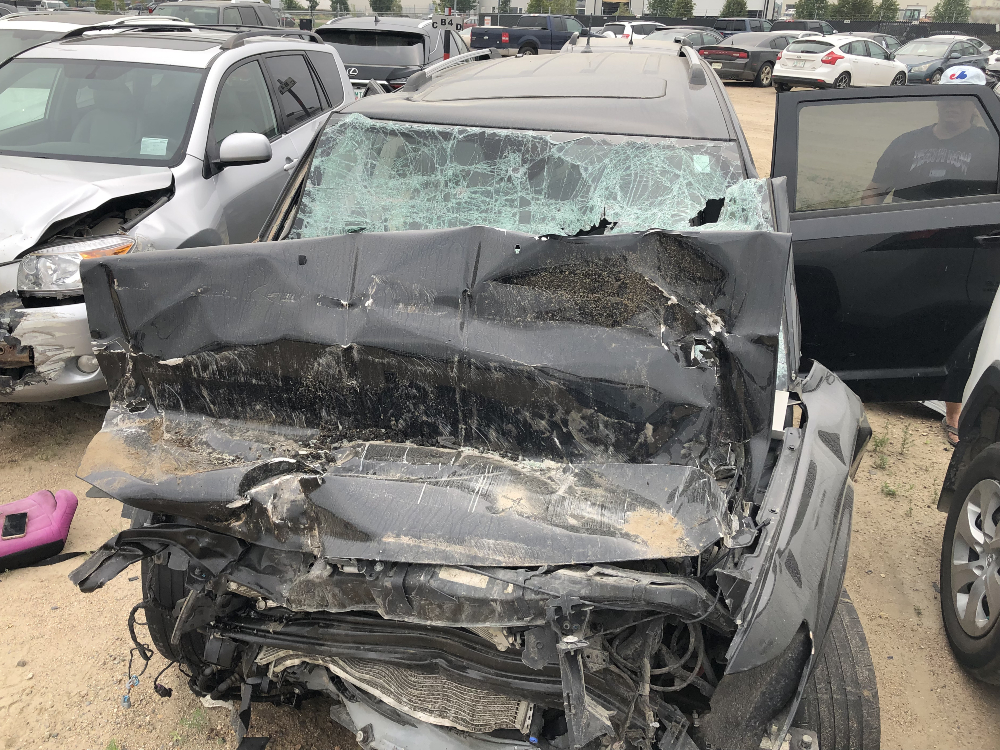
His best guess is that he tried to bring patio furniture in from the rain, cut himself and was en route to the hospital when he either lost consciousness or failed to see the construction vehicle in poor visibility.
“Even just trying to sit up in bed those first few days was a huge chore and it hurt to try and sit up and get to the bathroom,” McCormick said.
Doctors initially estimated he wouldn’t return to work until after Christmas — more than five months post-accident. Running again seemed even farther off. But McCormick surprised everyone, including himself. Less than two weeks after the crash, he went for a walk and felt better than expected.
A longtime user of Strava, McCormick began logging his post-accident recovery. He went for his first walk on July 25 and, though his knee hurt, his head felt clear. On July 30 he added some 30-second jogs to his walk. “I felt fine,” McCormick says. “Even the next day, I didn’t have any headaches.”
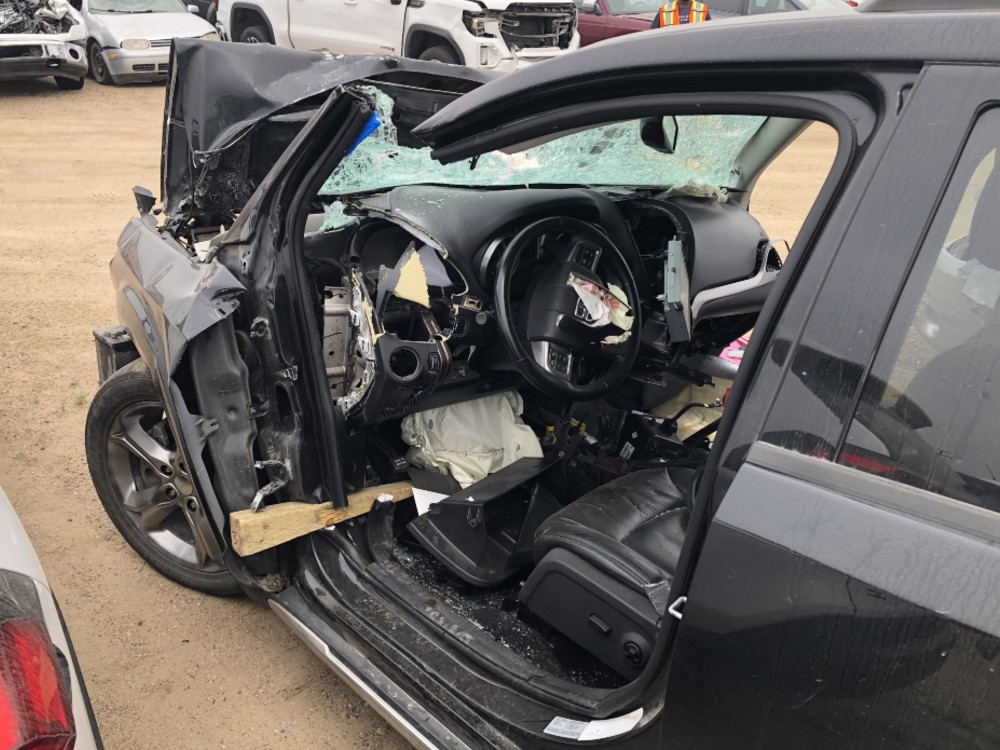
With the support of his health-care team, which included physiotherapist Peter McLeod at North49 Physical Therapy, McCormick kept moving. He biked to and from medical appointments and by mid-August was jogging two kilometres up and down his back alley with his dogs. By the end of the month he logged an 8.5-km run. The arm swings involved in running helped him rehab his rotator cuff and the fact he was running in a straight line — not doing cutting motions — meant his knee was not unduly aggravated. His head and neck were feeling better and he wasn’t tired all the time.
“It wasn’t like I was ignoring things and not putting effort into improving or rehabilitating, but I was lucky,” McCormick says. “There were no setbacks at any point and everything just kept going better than expected, even to my point where my doctor and the physical therapist were both like: ‘Wow, you’re not hurting or anything?’ They both kept saying, half-jokingly: ‘You need to be studied to find out what’s going so well for you.'”
McCormick went back to work fulltime in early September, missing only the first week of classes. And while he wasn’t setting personal bests on his runs, he was training with a passion he’d never felt before.

McCormick has been running since fourth grade, when he was part of a team his elementary school entered in a relay at the Saskatoon Field House. He was naturally fast and competed as a sprinter in school track meets, regularly winning or placing well. He won the Saskatoon city championships in both the 100m and long jump as a seventh grader. The next year he won the city cross country championship and realized he had potential over longer distances as well.
McCormick joined Saskatoon Track Club in Gr. 9 and later trained and competed with the University of Saskatchewan Huskies when he started his bachelor of science in kinesiology degree there in 2003. As a varsity athlete he focused on events from the 600m to the 1,000m and was relatively successful; his most notable result was a second-place finish in the 1,000m at the Canadian Interuniversity Sport (now USPORTS) championships.
After exhausting his varsity eligibility, McCormick ran inconsistently. “I literally didn’t do anything for eight or nine months, then I just kind of jogged here and there. I would train hard for a couple of months and compete with the Huskies before hanging it back up again,” McCormick says. “I could never keep myself motivated individually enough to do something.”
In 2016, McCormick connected with Saskatchewan marathon record holder Jason Warick, who was coaching a performance running group at the time, and started doing structured workouts again. In early 2020, as McCormick stared ahead at his 35th birthday, he started training for the World Masters Athletics Championships happening in Toronto that summer. The event was later cancelled because of the COVID-19 pandemic.
Now at age 40 McCormick has his sights on the 2026 World Masters Athletics Championships in Daegu, South Korea.
“I’m the most motivated I’ve ever been in my life,” McCormick says. “Looking back on my running career as a high school and university athlete, there was so much I got away with because of pure natural talent and speed. I look back on my running career as a waste of talent almost. I didn’t put in the necessary work that I should have or could have. There’s things I’m proud of — being part of the team that won the 4x800m relay at the 2005 Canadian Interuniversity Sport championships, the same year the Huskies won the championships — but, at the same time, I think: I never won an individual national championship or a big event when I was close a few times.
“Now, post-accident, I know I’ve been fortunate and lucky that there are no negative side effects. My body has bounced back 100% to where it was. Being a masters athlete, some people are like: I can’t do this like I used to. But for me, you know what? I’m a masters and I’m still able to do a lot of things. And post-accident, I can do them as well as I used to. So I’m looking at it like: You know what? It’s better late than never to maximize what I feel is some potential.”
These days, McCormick is working with Huskies coach Jamie Epp and training alongside the university athletes; “It helps motivate the group because they don’t want to lose to the old guy,” he says. His goal is to medal in Daegu in the 800m for the 40-44 year age category.
He hopes that by putting in the work he is serving as a role model to his students and his eight-year-old son, Ellis.
“I’m just extremely thankful that I was able to come back as I could. And part of my motivation now is I want Ellis to have an example set for him. I want him to go: Hey, look, my dad is still striving for things and is motivated,” McCormick says.
“In my younger career, I didn’t really have hopes of ever winning a world medal. But now, at my age, I can shoot for that.”

